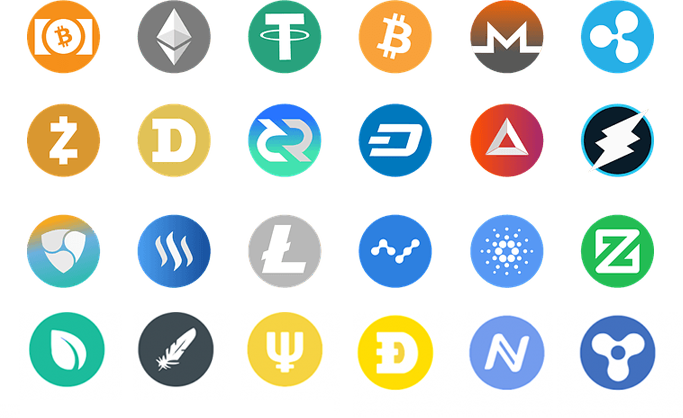The allure of cryptocurrencies has captivated millions, akin to the feverish pursuit of gold during the California Gold Rush. In today’s digital age, nearly 50 million Americans have embraced cryptocurrencies like Bitcoin, Ethereum, and DeFi coins as the new “precious metals.” Yet, unlike the fleeting frenzy of the Gold Rush, this modern-day rush to riches holds promise for sustainability.
However, its endurance hinges on accessibility, particularly for individual investors and financial professionals. The seamless integration of crypto asset management tools into the financial landscape is pivotal. This article delves into the significance of crypto asset management and why embracing it is paramount in navigating the evolving crypto market.
Exploring Crypto Asset Management
Crypto asset management, an extension of traditional asset management practices, entails the monitoring, acquisition, and divestment of digital assets residing on blockchain technology. From cryptocurrencies to non-fungible tokens (NFTs), the gamut of digital assets necessitates sophisticated management solutions. These tools consolidate multiple crypto accounts and wallets, furnishing users with a unified dashboard to oversee their investments. Furthermore, they offer analytical insights to inform investment decisions, fostering informed and strategic portfolio management.
The Significance of Crypto Asset Management:
Crypto asset management plays a crucial role in the broader ecosystem of cryptocurrencies and blockchain technology. Here are several key aspects highlighting its significance:
- Security: Proper management of crypto assets is paramount for security. Cryptocurrencies operate on decentralized networks, meaning there’s no central authority to reverse transactions or recover lost funds. Effective asset management includes employing secure storage solutions such as hardware wallets, multi-signature wallets, or reputable custodial services to safeguard against hacks, theft, or loss;
- Risk Mitigation: Managing risk is essential in the volatile world of cryptocurrencies. Diversification across various digital assets can help mitigate risk by spreading exposure across different projects and sectors within the crypto space. Additionally, implementing risk management strategies, such as setting stop-loss orders or using derivatives for hedging, can help protect investments from significant losses;
- Regulatory Compliance: As the regulatory landscape surrounding cryptocurrencies continues to evolve, adherence to compliance standards is crucial for individuals and institutions operating in the space. Proper asset management involves staying informed about regulatory developments and ensuring compliance with applicable laws and regulations, such as anti-money laundering (AML) and know your customer (KYC) requirements;
- Portfolio Optimization: Effective asset management aims to optimize portfolio performance by strategically allocating capital across different crypto assets based on factors such as risk tolerance, investment goals, and market conditions. This may involve conducting fundamental analysis to assess the long-term viability of projects, as well as technical analysis to identify optimal entry and exit points for trades;
- Long-Term Wealth Preservation: For investors looking to preserve and grow their wealth over the long term, proper asset management is essential. This includes adopting a disciplined investment approach, maintaining a diversified portfolio, and periodically rebalancing holdings to ensure alignment with investment objectives. Additionally, employing strategies such as dollar-cost averaging (DCA) can help mitigate the impact of short-term market fluctuations;
- Institutional Adoption: The emergence of institutional investors in the crypto space has increased the demand for professional asset management services tailored to their unique needs. Institutional-grade solutions, such as crypto hedge funds, asset management platforms, and digital asset custody services, play a vital role in facilitating the participation of institutional capital in the crypto markets;
- Wealth Distribution and Financial Inclusion: Cryptocurrencies have the potential to democratize access to financial services and wealth creation opportunities on a global scale. Effective asset management can help individuals and communities leverage the benefits of cryptocurrencies to improve financial inclusion, access to capital, and economic empowerment, particularly in regions with limited access to traditional banking infrastructure.
In summary, crypto asset management is essential for ensuring the security, compliance, optimization, and long-term preservation of crypto investments, while also facilitating institutional adoption and promoting financial inclusion and wealth distribution.
Why Individual Investors Should Embrace Crypto Asset Management
Individual investors should embrace crypto asset management for several compelling reasons:
- Diversification: Including cryptocurrencies in one’s investment portfolio can offer diversification benefits. Cryptocurrencies have historically exhibited low correlation with traditional asset classes like stocks and bonds, meaning they can provide a hedge against market downturns and enhance overall portfolio resilience;
- Potential for Growth: Despite their inherent volatility, cryptocurrencies have demonstrated significant growth potential over the years. By allocating a portion of their investment capital to cryptocurrencies and actively managing these assets, individual investors can capitalize on opportunities for substantial returns;
- Access to Innovative Markets: Cryptocurrencies represent a novel and rapidly evolving asset class with unique investment opportunities. By engaging in crypto asset management, individual investors can gain exposure to innovative blockchain projects, decentralized finance (DeFi) protocols, non-fungible tokens (NFTs), and other emerging trends shaping the future of finance and technology;
- Financial Sovereignty: Cryptocurrencies empower individuals with greater financial sovereignty and control over their assets. By managing their crypto holdings directly through self-custody solutions like hardware wallets or non-custodial wallets, investors can bypass intermediaries and retain full ownership and control of their funds, enhancing security and privacy;
- Educational Opportunities: Engaging in crypto asset management can serve as a valuable educational experience, helping investors deepen their understanding of blockchain technology, digital assets, and financial markets. By actively researching, analyzing, and managing their crypto investments, individuals can enhance their financial literacy and gain insights into emerging trends and market dynamics;
- Innovation and Disruption: Cryptocurrencies are at the forefront of financial innovation and disruption, challenging traditional notions of money, banking, and investment. Embracing crypto asset management allows individual investors to participate in this transformative ecosystem, supporting innovation and driving positive change in the global financial landscape;
- Inflation Hedge: Cryptocurrencies like Bitcoin are often touted as inflation hedges due to their limited supply and deflationary monetary policies. In an environment of rising inflation and currency debasement, holding crypto assets can help preserve purchasing power over the long term, providing a hedge against fiat currency depreciation;
- Global Accessibility: Cryptocurrencies offer unprecedented accessibility to global financial markets, enabling individuals to invest, transact, and engage in economic activities across borders with greater ease and efficiency. Crypto asset management facilitates participation in this borderless financial ecosystem, opening up opportunities for individuals to diversify their investments and access new markets worldwide.
Overall, embracing crypto asset management empowers individual investors to diversify their portfolios, capitalize on growth opportunities, gain financial sovereignty, deepen their understanding of emerging technologies, hedge against inflation, and participate in the global economy on their own terms.
The Imperative for Financial Professionals:
Financial professionals, entrusted with guiding investors through the intricacies of wealth management, stand to gain immensely from integrating crypto asset management into their practice. With a burgeoning interest in crypto among clients, offering tailored management solutions becomes imperative for staying competitive. Furthermore, traditional financial management tools often fall short in meeting the dynamic demands of today’s investors. By embracing modern asset management platforms, financial professionals can deliver a seamless, efficient, and secure investment experience. Additionally, given the unique security challenges posed by cryptocurrencies, specialized management tools offer enhanced protection for client assets.
Conclusion
As cryptocurrencies permeate the mainstream financial landscape, the imperative for effective asset management becomes increasingly pronounced. For individual investors, embracing crypto asset management fosters portfolio optimization, goal attainment, and risk mitigation. Likewise, for financial professionals, integrating these tools augments client service, enhances competitiveness, and fortifies asset security. As the crypto market continues to evolve, the adoption of robust asset management solutions emerges as a linchpin for navigating its complexities and realizing its transformative potential.




















+ There are no comments
Add yours